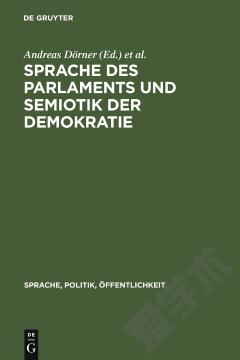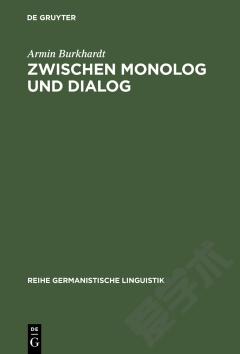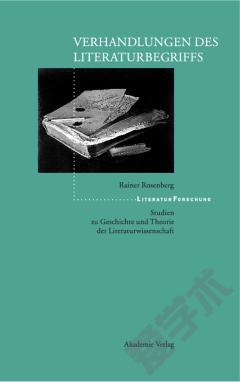Das Parlament Und Seine Sprache —— Studien zu Theorie und Geschichte parlamentarischer Kommunikation
----- 议会及其语言:议会传播理论与历史研究
Starting with an analysis of constitutive and pioneering sessions in central German parliaments since 1848, the study demonstrates how plenary debates have become more and more strongly ritualized and are progressively deteriorating into media events. Major chapters of the book are devoted to the linguistic description of political language and communication, the structural changes undergone by parliamentary publicity, the semiotics of plenary halls, and specific aspects of parliamentary communication. Additionally, the Wende debate (1982) serves as a demonstration of the most important phenomena of parliamentary language: catchwords, key terms, evaluative expressions, metaphor, allusions, the play on proper names, rhetorical figures, presuppositions, forms of address, the 'inclusive we', quotations.
{{comment.content}}








 京公网安备 11010802027623号
京公网安备 11010802027623号